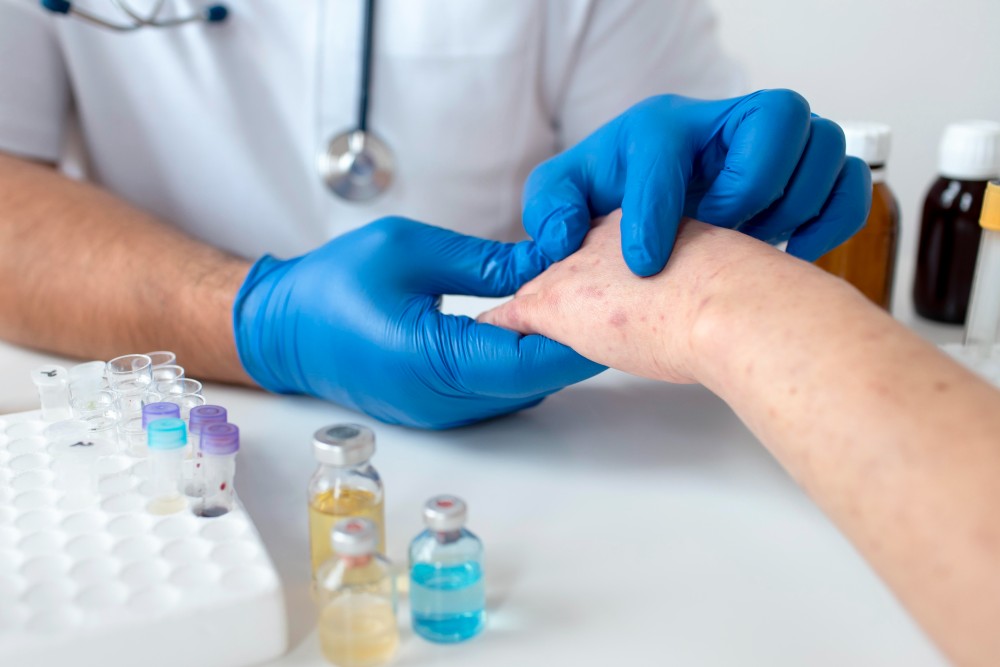Allergies can significantly impact your daily life, from mild irritation to severe reactions that interfere with work, school, and overall well-being. For those struggling with persistent symptoms, seeking professional help at an allergy clinic can make a world of difference. An allergy treatment clinic offers specialized care tailored to your unique needs, helping you manage and alleviate your allergy symptoms effectively.

Understanding Allergy Symptoms
Allergy symptoms vary widely depending on the individual and the allergen involved. Common signs include sneezing, runny or congested nose, itchy or watery eyes, skin rashes, and in severe cases, difficulty breathing. Seasonal changes often trigger reactions, particularly during spring and fall when pollen counts are high. These seasonal allergies can cause discomfort and disrupt daily routines, making professional assessment essential.
Personalized Care for Every Patient
One of the main advantages of visiting an allergy clinic is the personalized approach to treatment. Allergy specialists assess your specific symptoms, conduct diagnostic tests such as skin prick tests or blood work, and develop a treatment plan tailored to your needs. This individualized care ensures the most effective management strategy, whether it involves lifestyle adjustments, medications, or immunotherapy.
Treatment Options Available
Managing allergies typically involves a combination of approaches. Allergy medicine, including antihistamines, decongestants, corticosteroids, and leukotriene inhibitors, helps relieve symptoms and prevent flare-ups. For patients with persistent or severe reactions, allergy specialists may recommend allergy shots (immunotherapy) that gradually desensitize the immune system to specific allergens. This treatment not only reduces allergy symptoms but can also offer long-term allergy relief.
Lifestyle modifications also play a crucial role in managing seasonal allergies. Reducing exposure to triggers—like pollen, dust, pet dander, and mold—combined with regular cleaning, air filtration, and protective measures, can significantly enhance treatment outcomes.
Why Choose an Allergy Clinic?
Visiting a dedicated allergy clinic provides benefits that go beyond standard care. Unlike general practitioners, allergy specialists have extensive training in identifying and treating complex allergic reactions. They can distinguish between various triggers, from environmental allergens to food sensitivities, ensuring that your treatment plan addresses the root cause of your discomfort. Additionally, ongoing monitoring and follow-up care at the clinic help track progress and adjust treatments for optimal results.
By seeking professional help, patients gain access to a team committed to improving quality of life, minimizing flare-ups, and delivering comprehensive allergy relief. Whether your symptoms are mild or severe, a specialized clinic ensures that you receive the most effective, safe, and personalized care available.
Choosing a professional allergy clinic ensures that you receive expert guidance, tailored treatment plans, and the support you need to manage your seasonal allergies effectively. By working with allergy specialists, patients can regain control of their health and enjoy life without the burden of persistent allergic reactions.
Frequently Asked Questions (FAQs)
Q1: What are common signs of allergies?
A: Common allergy symptoms include sneezing, runny or itchy nose, watery eyes, skin rashes, coughing, and, in severe cases, shortness of breath or swelling.
Q2: How can an allergy clinic help?
A: An allergy clinic provides specialized testing, diagnosis, and personalized treatment plans. Allergy specialists help identify triggers and recommend appropriate allergy medicine or therapies.
Q3: What treatments are available for seasonal allergies?
A: Treatments include over-the-counter or prescription allergy medicine, lifestyle changes to reduce exposure, and immunotherapy (allergy shots) for long-term relief.
Q4: How do allergy specialists determine triggers?
A: Specialists use methods like skin tests, blood tests, and detailed patient history to pinpoint allergens and develop a targeted treatment plan.
Q5: Can allergies be cured completely?
A: While many allergies cannot be completely cured, proper treatment and preventive measures can significantly reduce allergy symptoms and provide long-term allergy relief.
Breathe easy again! Explore top allergy treatments. Call us at (254) 308-7868 or visit our website https://sccwaco.com/services-and-specialities/allergy/ to schedule your consultation.
